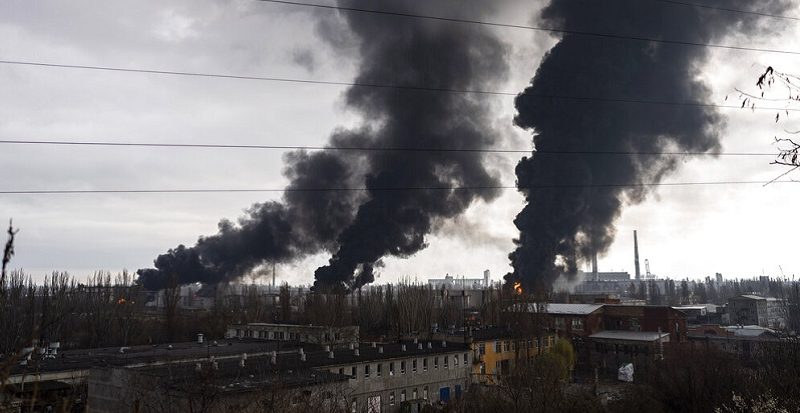by Jared Dillian, The 10th Man
Today, we’re talking about why the war in Ukraine was such a dud for the bears.
Things got scary for a while, with open discussion of nuclear war. That seems to have abated. People were starting to believe Putin was not a rational actor, that he might drop a nuke somewhere, but it looks like the economic sanctions have been effective enough that he doesn’t want any more trouble. Russia will default on its foreign debt, imminently.
Here is how this works. Anytime the stock market faces uncertainty that is possibly negative, people extrapolate to the worst possible outcome and work backward from there. In the case of the pandemic, people imagined tens of millions of deaths and years of lockdown. The stock market tanked 35% in a month.
With Ukraine, once the stock market got over the nuclear fears, it viewed the conflict as something relatively contained and unlikely to spread. Sure, it is possible Russia will go after NATO members next, like Poland and the Baltic states, but not anytime soon. So, the stock market dropped 12%, and that was the end of that.
A lot of people are accusing the stock market of being irrational, in that it didn’t go down more, but I think it went down the correct amount. Crucially, volatility didn’t rise much, and credit spreads didn’t blow out, which tells you there was absolutely no panic. One bad part of the pandemic was all the uncertainty, and the worst-case scenario was pretty terrifying.
The market is smarter than you or I. In the beginning of the war, I was tweeting about how we were all going to get nuked into glass—and the VIX was below 30. It didn’t make sense. But the market discounting machine was working just fine. It knew before you or I did that the conflict was a stalemate and that Putin wasn’t a madman. Funny how that works.
The Financial Crisis
If we go back and look at some of the great bear markets, why was the financial crisis so bad? Because the financial system came *this close* to imploding when money markets froze up before the Fed backstopped them. Most people have no idea how close we came to walking around in barrels with suspenders. There was a great deal of leverage involved, and it’s the leverage that kills.
Notably, there is not much leverage in the system today, outside of corporates. And corporates have an implicit Fed put, having already been bailed out two years ago at the beginning of the pandemic. You can’t think corporate bonds will implode without believing the default rate will increase, and there was nothing in this mini crisis that had any nexus to corporations defaulting. Hence, it was not as bad as it seemed.
The dot-com bubble didn’t have much in the way of leverage, but we were coming off sky-high valuations. So, stocks had a long way to fall. Valuations of the big tech companies have been steadily compressing—Facebook (FB) is practically a value stock at this point. And the growth/innovation stocks were already 60% off the highs.
The 1970s
If the ‘70s are the analog here, what worked in the ‘70s? Commodities worked, bonds didn’t work, and stocks went sideways for 10 years. That seems to be the playbook here. Commodity prices, whether they are energy, metals, or agriculture, are levitating every day, which indicates that people have figured this out. The Bloomberg Aggregate Bond Index is now down over 7% year to date, which is an absolute horror show. And people say investing is hard.
Well, it is hard because people have difficulty zooming out and looking at the big picture. They get caught up in the daily fluctuations. One thing I will say about the big macro hedge fund managers—they have an uncanny ability to zoom out and look at the bigger picture. Twelve percent is not that big of a correction, and that’s what we just had. People tend to hyperventilate and think this time is the big one. But it never is. In fact, we’ve only had four big ones in the last 100 years, where stocks dropped 50% or more. Tough to bet on something that only comes along every 25 years on average. And we just had two of them in quick succession.
If you’re wondering why the stock market didn’t crash, and you’re the embarrassed owner of a bunch of busted put options, that’s why. Being short is impossible, and hedging is expensive. Sentiment, at this point, is neutral, and there is no catalyst for another leg lower. Some people say that a bunch of rate hikes will do it—in fact, that seems to be the consensus—but I tend to doubt it.
Comings and Goings
Flew out to San Diego last week to speak at a conference—lots of macro chatter. The next big highlight on my speaking docket is the SIC 2022. I’m giving a talk on May 9, where I’ll share more out-of-consensus views. Get the details here.

Jared Dillian
Copyright © The 10th Man











